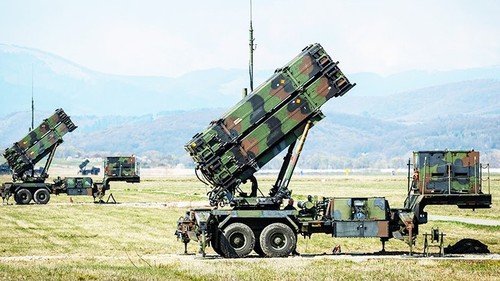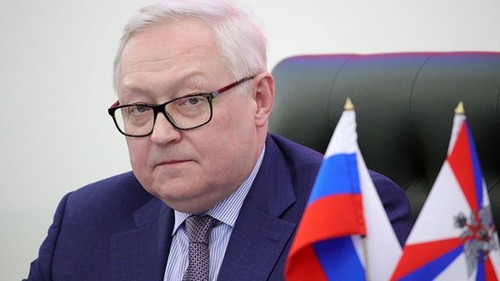 Intercontinental ballistic missile launch facility of the US (Photo: GETTY IMAGES) Intercontinental ballistic missile launch facility of the US (Photo: GETTY IMAGES) |
New START, signed by President Dmitry Medvedev and President Barack Obama in 2010, is now the only nuclear control treaty between Moscow and Washington. It limits each country to 1,550 deployed warheads and a maximum of 700 long-range missiles and bombers. It specifies direct inspection to verify the compliance of each country. In 2020 the two suspended inspections because of the COVID-19 pandemic.
Russia is sending a message to the US and NATO
The reason for the suspension, according to Moscow, is that the US is using the treaty as a tool to weaken Russia. President Putin accuses the US and NATO of targeting their nuclear missiles at Russia and expressed concern about their new types of weapons projects. Putin said it was absurd that the US and NATO demand that Russia should allow inspections of its nuclear bases, while NATO is helping Ukraine attack them. He referred to attacks last December on Engels air base for Russian strategic bombers, 730 km southeast of Moscow, which Russia blamed on Ukraine.
At the UN Conference on Disarmament in Geneva, on Thursday, Russian Deputy Foreign Minister Sergei Ryabkov said that the US helped Ukraine attack Russia’s strategic sites. He said the situation has worsened since the US attempted to probe Russia’s strategic facilities under New START by helping Ukraine attack these facilities. Russia had no choice but to suspend the treaty. Kyabkov warned that the US and NATO’s involvement in armed confrontations could lead to direct military clashes between nuclear powers and dire consequences.
 Russian Deputy Foreign Minister Sergei Ryabkov (Photo: Tass) Russian Deputy Foreign Minister Sergei Ryabkov (Photo: Tass) |
According to the Stockholm International Peace Research Institute (SIPRI), Russia and the US possess 90% of the world's nuclear warheads. As of early last year, Russia had nearly warheads, of which more than 1,600 could be ready for use. The US had an arsenal of 5,500 warheads, with 1,750 believed to be immediately operational.
Russian analysts said Moscow suspending the New START is a clear signal to the US and NATO that Russia is ready to do anything to protect its national interests and security. The Russian Foreign Ministry has said that it will not discuss the New START with the US as long as Washington continues to arm Kiev.
International concern
Observers fear that the suspension of New START means Russia and the US have no stable legal framework to control each other's nuclear capabilities. This could spark a new arms race and erase gains of nuclear treaties between Russia and the US over the last five decades. President Donald Trump withdrew the US from the Intermediate-Range Nuclear Forces (INF) in 2019, making New START the only tool for Russia and the US to control each other’s nuclear weapons.
William Alberque, Director of Strategy, Technology and Arms Control at the International Institute for Strategic Studies, said the suspension of the New START could mean the number of warheads will multiply. Both sides could go from 1,550 deployed strategic warheads to 4,000 overnight.
James Cameron, a post-doctoral fellow at the Oslo Nuclear Project, said that if New START was abandoned, it would mark a return to Cold War-style guesswork about the adversary’s capabilities and intentions. It ultimately leads to a much more unstable situation and a greater risk of some kind of nuclear use.
In announcing the suspension of the New START, Russia also affirmed that it still adheres to the nuclear warheads limit. Moscow has made it clear that it will not withdraw from the Treaty entirely, which means there is room for negotiation with the West.